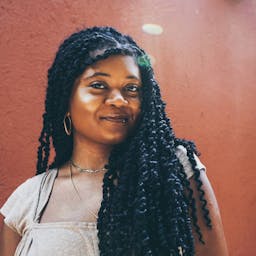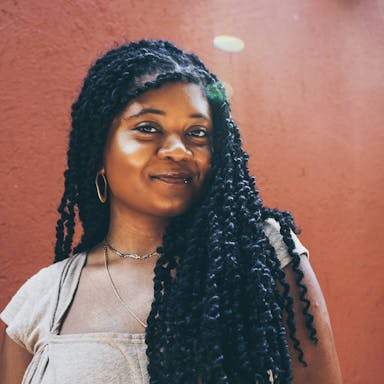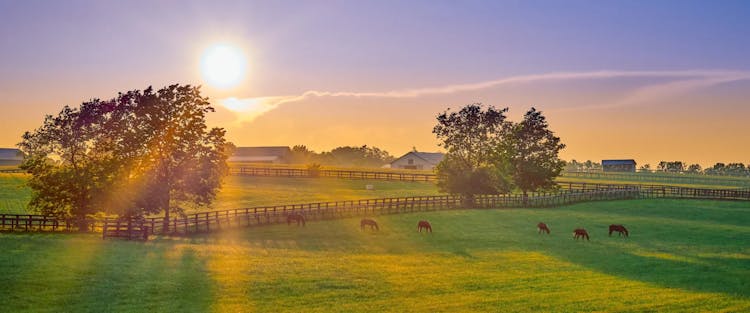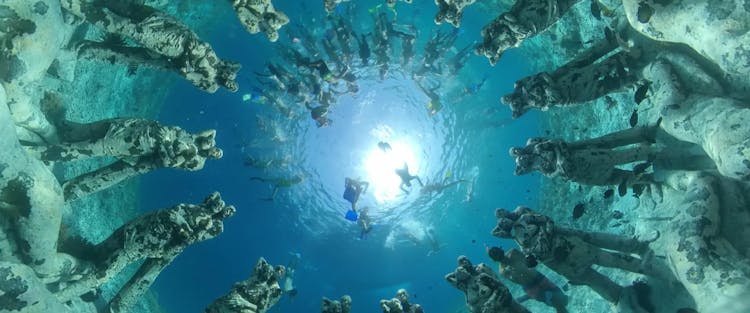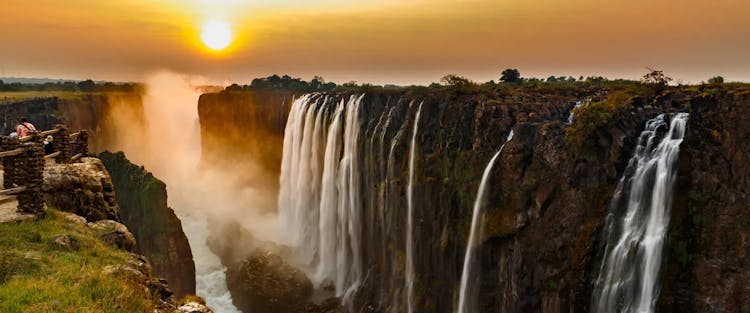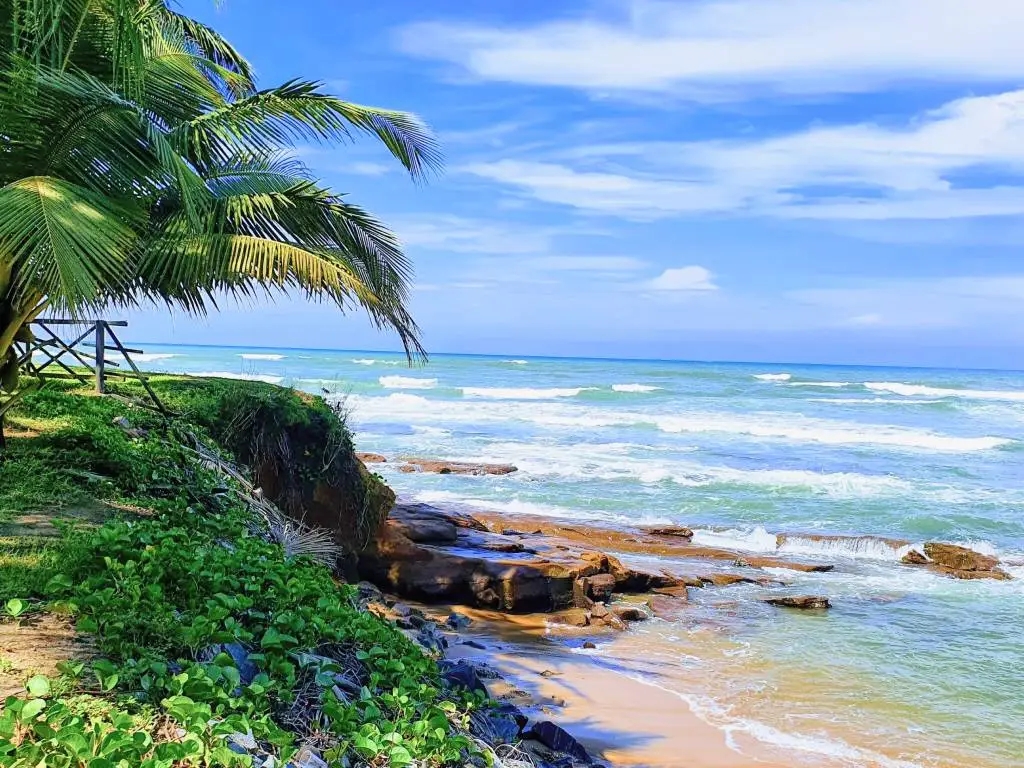
Ghana: The Coastal African Country Known as the Gateway to Africa
Located just off the Atlantic coast and on the edge of the Gulf of Guinea, Ghana is a small West African country home to about 32 million people and considered the Gateway to Africa. Known for its warm spirit (it's sub-Saharan Africa's second-most peaceful country), vibrant art and music, 300+ miles of stunning coastline, the bustling Accra capital, and as a hub of Black history, Ghana continues to rise in popularity.
For over 60 years since gaining its independence, Ghana has been a conduit for connecting its past and present, its locals and diasporans. The country’s first president, Kwame Nkrumah, was a devoted Pan-Africanist who fought for the betterment of African descendants globally. Today, Ghana remains a hub of history and culture and a popular destination for Black travelers, music festival lovers, and nature enthusiasts.
Paying homage to the past

Along the coast of Ghana’s central region are two castles that hugely impacted the history of Ghana and West Africa as a whole, Cape Coast and Elmina castles. Used as trading posts when Ghana was known as the Gold Coast, these dungeon-like forts were later used during the Trans-Atlantic Slave Trade from the 1500s through the early 1800s by European colonizers like the British and Portuguese. About 12 million enslaved Africans were held in captivity, passing through coastal forts like Cape Coast’s all over West Africa, from Senegal to Benin.
Today they are remnants of a horrible historical past, and in recognition of the long-standing effects the Slave Trade had on the lives of African descendants today, they have been made UNESCO World Heritage Sites. For many diasporans traveling to Ghana, visiting the castles is an important part of honoring their ancestors’ resilience.
After walking through the narrow and windowless cells, visitors now walk through each castles’ "Door Of No Return," the oceanside portals through which enslaved people saw their homelands for the last time before being shipped to the Americas, millions dying along the way.
It’s nice to have a chale
Awkaaba! It’s one of the first sayings you’ll hear when visiting Ghana because it means welcome. Ghana is a multilingual country with many Indigenous languages spoken. There are nine government-sponsored languages, with some of the most popular including Akan, Ewe, Ga, and Dagbani, among dozens of others.
Ghanaians are known for their kindness, so it’s no surprise that another popular word, chale, means friend or mate, and it’s used frequently in daily conversation to get someone’s attention or while sharing a laugh with friends and sometimes even in stressful situations.
To say please, use abeg, which means “I beg.” Sometimes you’ll hear folks say “chale, abeg” before asking a question. For politeness, which is taken very seriously in Ghana, keep eti sien (Hi, how are you?) and medaase (thank you) on hand.
Festivals galore

Ghana has a lot of music and art festivals that are worth planning your trip around. Every August, the seaside neighborhood of Jamestown in Accra hosts Chale Wote. The weeklong street art festival is beloved for its unconventional performance art, installations, and films. It's all set to the sounds of live brass bands and hiplife, a Ghanaian-born musical style that fuses with African American hip-hop.
In December, the diaspora gathers to hear Afrobeats artists like Wizkid and Burna Boy at Afrochella, a two-day music and art festival that started in 2017.
The Ankos Festival is a masquerade street carnival in the Western region of Takoradi held during Christmas. The festival's exact history is widely unknown. Many say it's been happening since at least the 1960s, celebrates the unity of the people of Sekondi-Takoradi, and is a way of ushering in the new year. Brass bands and masquerade clubs parade through the streets, dancing and wearing delicately crafted costumes made of thin, brightly colored patchwork fabrics prepared for months before the festival. Like many African diaspora carnivals around the world in places like Trinidad and Tobago and Brazil, Ankos is a celebration of life, culture, and community.
Dancing your way through the capital
Beyond annual festivals, every night is a party in Ghana’s capital city, Accra. Nightlife and music are a big part of the city’s identity, so much so that events happen every night of the week, particularly in Osu, a lively neighborhood full of the city’s best clubs, bars, and restaurants.
Ghanaians will point you toward two Osu favorites: Republic and Purple Pub. At Republic, an indoor-outdoor space with a DJ that feels like a backyard barbeque, grab the Kokroko cocktail. It’s hibiscus-based with lime, mint, and brown sugar, infused with local liquor and served slushie-style.
Purple Pub is a small bar on a busy back street lined with tables and chairs in the middle of the Osu Night Market, a nightly street party with lots of food vendors. There are pool tables, shisha servers, a live DJ, and fried chicken with yam chips on the menu. You’ll want to order the Five Fingers, a locally loved blue concoction. Both bars are great places to have pre-drinks before heading to other popular spots like Bloom Bar and Kruna the Club.
Hiking the hills

Few people consider West African countries when planning their dream safaris, so the numerous opportunities to experience Ghana's wildlife may be surprising. Head to the Northern Region for Mole National Park, the country's largest protected wildlife refuge, at nearly 2,000 square miles. Take a ride on a Jeep's roof during a day safari—the best way to see elephants, monkeys, buffalos, and more. There are over 50 butterfly species in Mole, including the Anthenetalboti. Although they usually call East Africa home, Ghana is the country where the butterfly has been recorded in West Africa.
Just under two hours from Accra, explore the 18-square-mile Shai Hills Resource Reserve. Between the five hills and miles of grassy plains, you'll likely spot the baboons, antelopes, zebras, reptiles, and 160 recorded bird species that call the reserve home. For the most intimate outdoor experience, spend the night at Shai Hills in one of their luxury glamping tents.
To market, to market
Built during colonial times, markets are some of Ghana's most significant economic hubs. Stalls swallow the sidewalks with vendors, primarily women known as the Market Queens, peddling the freshest produce, jewelry, clothing, and practically anything else you can think of. They're the go-to places for buying traditional items like fabrics, waist beads, or shea butter.
Getting sucked into bustling Makola Market's clogged streets filled mostly with locals is easy in Accra. One hundred and fifty five miles away in southern Ghana, Kumasi’s open-air market, Kejetia, is even more intense than Makola. Often called the largest in West Africa with 11,000 stalls and plenty more people, similarly, the market sells everything you'd want, from knick-knacks to traditional Ashanti clothing. At both, bargaining is considered the norm, and the weekends are the busiest days though they're congested daily.
Go chop

Ghanaians love to chop (which means to eat), and like many bustling metropolises, the country's biggest cities run on street food. Busy intersections, beaches, and night markets are filled with vendors selling traditional meals and snacks. Ghanaian food is a hearty medley of soups, stews, and fresh seafood and often uses ingredients such as hot peppers, yams, tomatoes, beans, plantain, rice, and cassava.
Ghanaians love eggs, usually boiled, and accompanying popular dishes like waakye, a breakfast favorite served all day and loved across the country. It's made with rice, beans (usually red or black-eyed peas), stew, plantain, gari (grated cassava), spaghetti, shito (a hot pepper sauce), and sometimes meat, fish, salad, or boiled egg and wrapped in ahaban, green plantain leaves.
There are meat kebabs called kyinkyinga, small chunks of beef or goat dusted in suya, a spicy rub of hot pepper, peanut, garlic, and other herbs. Kelewele is served fistful as cubed, hot-peppered ripe plantain fried until caramelized.
Palm wine, bofort (a West African doughnut sometimes called puff puff), tilapia and banku (a tangy fermented ball of dough made with corn and cassava), egg and pepper (a halved boiled egg topped with a red pepper sauce), and roasted corn should also be on your street food list. Be sure to keep a few Ghanaian cedis in cash on you at all times, as vendors are always nearby, charging between 1-10 cedis for most meals.
Catching some waves

With over 300 miles of coastline, catching waves in Ghana takes on a new meaning. Beautiful beaches come aplenty—like the popular day trip spot for Accra locals, Kokrobite—and the country is also a major player in West African surf culture. Head to Mr. Bright's Surf School for daily board rentals and private classes. Some of Ghana's best swells are at Busua Beach in the Western Region, where Ahanta Eco Lodge offers lessons and weeklong surf camps.
It's not all sunshine and waves, though. About 25% of Ghana's population lives on the coast, and due to erosion, rising temperatures, and sea levels, some communities (like the former fishing village, Fuveme) are being washed away. This displacement directly threatens the livelihoods of people whose necessities are tied to fishing.
See Going's deals on flights to Ghana, and join today to get cheap flights delivered right to your inbox.
More destinations in Africa:
Published October 26, 2023
Last updated December 19, 2023
Articles you might like
View AllTreat your travel to cheap flights
Most deals are 40-90% off normal prices with great itineraries from the best airlines. If it's not an amazing deal, we won't send it. Sign up for free to start getting flight alerts.
